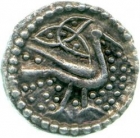Literacy
History is the closest subject to literacy. There are many opportunities between the two subjects for cross- curriculum teaching. Teaching history raises standards in literacy because there are many English based activities that are used in history lessons. History lessons require teachers and children to use their literacy skills in reading, writing and speaking and listening. Read more
Sort by:
Date (Newest first) | Title A-Z
Show:
All |
Articles |
Podcasts |
Multipage Articles
-

Using historical fiction in the classroom
ArticleClick to view -

Visual literacy: Look, talk, write - Using a picture to extend vocabulary
ArticleClick to view -

Why stories?
ArticleClick to view -

Working with Historical Picture Books
ArticleClick to view -

Writing & History Overview
ArticleClick to view -

Writing Family Story, Writing History
ArticleClick to view -

Writing history
ArticleClick to view -

Writing: demonstration and modelling
ArticleClick to view

